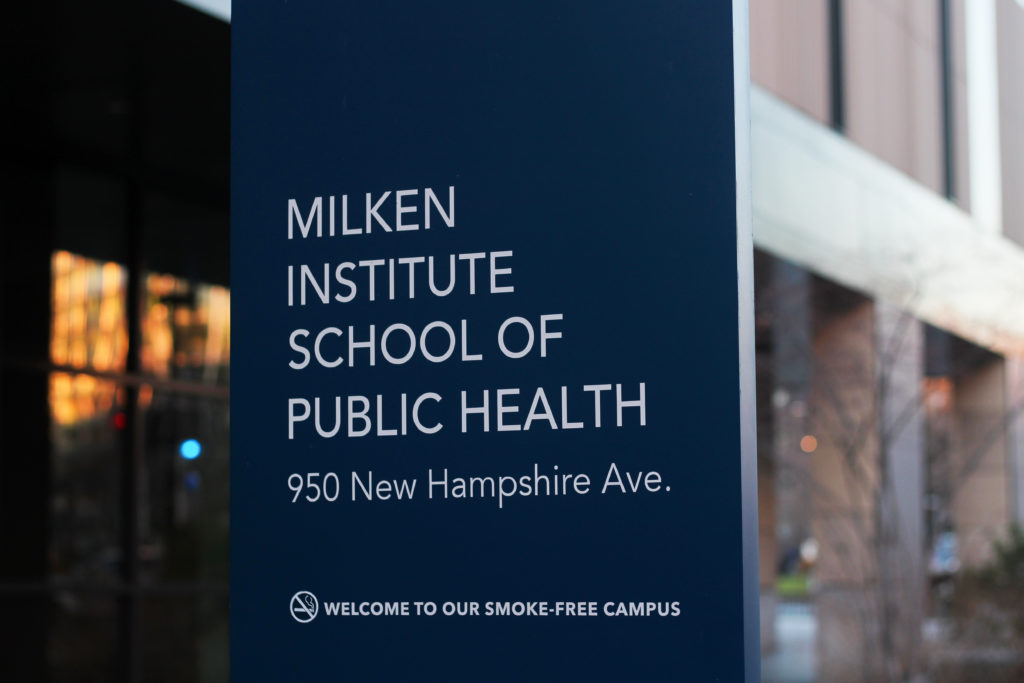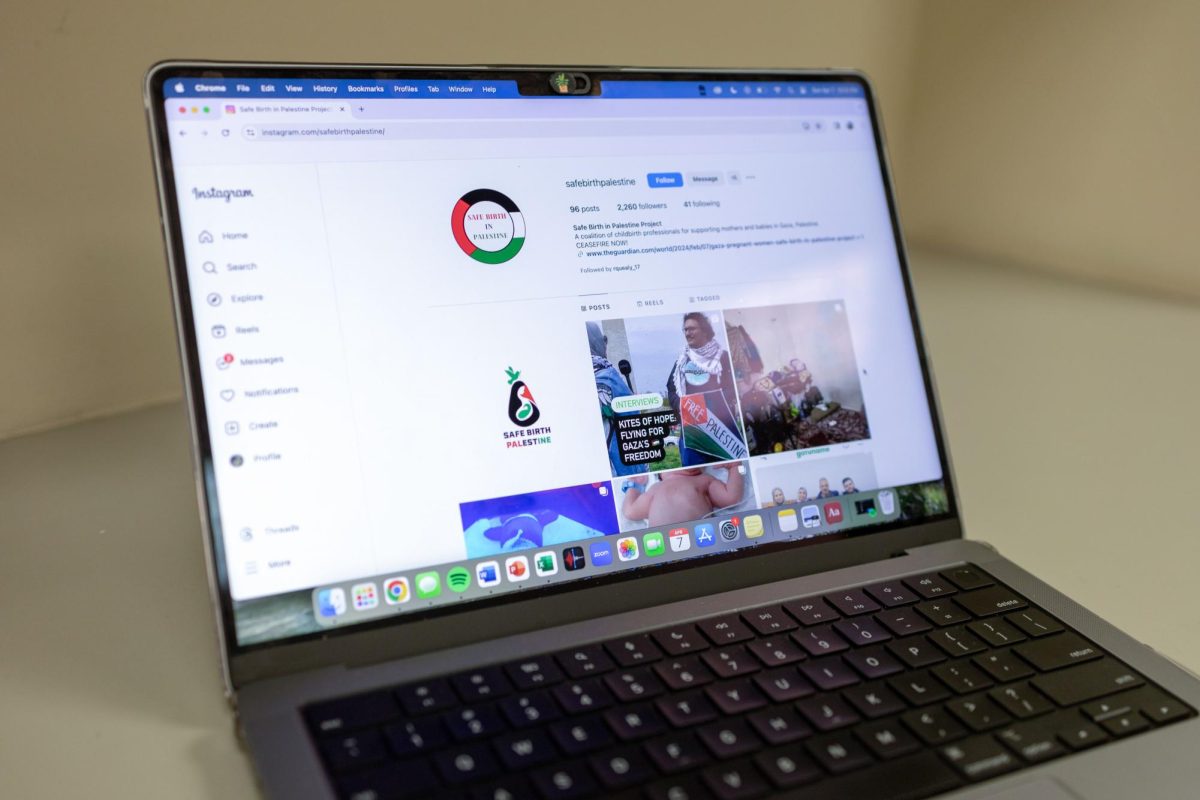Researchers in the Milken Institute School of Public Health have received more than $2 million in grants from the National Institutes of Health to fund COVID-19 research throughout the pandemic.
Since the start of the health crisis, Milken researchers have been using grants they’ve received to develop at-home COVID-19 tests and launch clinical trials for a potential vaccine. Milken officials said the school’s public health researchers engage in a variety of disciplines, like epidemiology and biostatistics, that play a role in the solutions to the pandemic.
Adnan Hyder, the senior associate dean for research at the public health school, said in addition to the funding already received from the NIH, “millions more” applications for federal funding are under review. He added that several institutes within the school have directed their existing resources to support COVID-19 research.
“In many cases, COVID-19 research aims to better understand the virus, the way it is spread, how it triggers severe illness and how we can prevent it,” Hyder said in an email. “The goal of such research ultimately is to prevent adverse health effects from this virus.”
Using funds allocated to the public health school, researchers have invested time in a variety of public health issues regarding the pandemic, like investigating the connection between COVID-19 mortality and obesity and administering a health care worker survey about experiences responding to the pandemic.
GW has also set aside an internal fund for research that offered researchers grants between $5,000 and $25,000, which they could apply to between April 17 and June 1. The proposals were subject to an unusually quick approval process and an eight-page limit, according to the University’s research website.
Lynn Goldman, the dean of the public health school, said Milken officials have been evaluating research proposals to determine how many resources they need to conduct their work.
“As public health researchers, we broadly frame our work around all phases of pandemic preparedness response – identifying actions to protect health prior to, during and in the period of recovery from a pandemic or any other disaster,” she said in an email. “We look broadly at many factors, including biological, social, behavioral and environmental, that can be important in preventing diseases like COVID-19.”
Goldman said Milken’s Office of Research Excellence tracks potential research projects and notifies faculty of any project that may be a good fit for them. She said the most successful opportunities for researchers have been when they can use research to better understand the pandemic and apply knowledge to address a specific problem.
“For example, some projects aim to better understand a disease like COVID-19 or pave the way for a treatment or vaccine,” she said. “Others aim to address a problem, such as the lack of personal protective equipment for frontline health care workers.”
Academic research experts said many universities have accelerated their research proposal processes to prioritize addressing the coronavirus pandemic. Despite universities’ larger budget cuts, they said academic research teams have remained largely unaffected by cutbacks, given that direct research funding has primarily come from government institutions.
Moshe Levi, the interim dean for research at Georgetown University, said Georgetown had an expedited application process for internal funding and received 30 proposals for research within a week after they notified faculty of the fund.
Levi said because funding from government institutions is already set in stone, university layoffs and funding cuts for faculty are the only factors that might financially inhibit research.
Officials have laid off hundreds of staff members to alleviate financial stress brought on by the pandemic, but officials have not discussed laying off tenured or tenure-track faculty. GW faces a $160 million budget shortfall for the 2020-21 academic year.
“If you have unfunded faculty – the university gives you money for travel, to go to scientific meetings, for this or that – that’s affected, but otherwise, research in most universities is really funded by external grants, not internal grants, including George Washington,” Levi said.
Levi said Georgetown’s COVID-19 research has not come at the expense of other areas of research at least for now. He said if research-funding institutions like the NIH do not see increases in their budgets, funding for COVID-19 research will eventually cut into opportunities for research in other fields.
The NIH rushed to award $3.6 billion that the agency received from Congress in grants to academic researchers, Science Magazine reported in June.
“Within NIH or other funding agencies, sometimes they put money into COVID-19 research, and if their overall budget does not increase, that comes at the expense of other areas, which is really dangerous,” Levi said.
Meredeth Cole, the communications manager for the Office of the Vice President for Research at the University of Virginia, said UVA’s grant proposal process has also been accelerated to more rapidly address COVID-19. She said UVA has awarded nearly $3 million in grants in a significantly more “rapid” manner than the typical funding process.
“Seeing problems and coming up with solutions, and not in a way that’s ‘How much money can we make off of this?’ but ‘How can we share with others?’” she said. “And I think the generosity between academics has been tremendous during the pandemic.”








